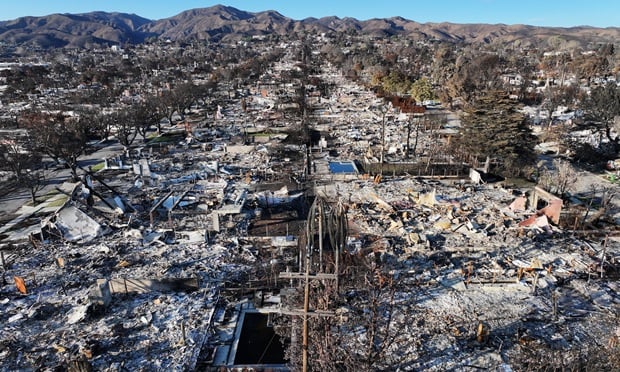Every claims handler can tell you a story about the claim that got to him or her. It is often a story about the sudden, violent death of an ordinary person. These narratives usually include a detailed description of a small mistake that cascaded into a tragedy or a rendition of a momentary loss of attention that led to terrible consequences. These are quintessential claims stories which speak to a chaotic, unpredictable world wherein the chances of sustaining pain, suffering, and death seem much more likely. They arise from a narrow band of experience where fairness and right living count for nothing. They are intended to be disturbing because they originally disturbed the teller.
What is surprising, perhaps, is the fact that these vivid claims stories may not have been experienced firsthand. Typically, they involve a retelling of the victim's version of the injuries and loss events. Recall of these events does not seem to diminish over the years and, in some cases, the effect of these stories on claims professionals appears to be cumulative. Folks in other departments at insurance companies often comment about how claims handlers are different than associates in sales and underwriting. They mention the specific types of stories that claims people relay and that claims people seem to be more prickly, negative, and cynical than others. These observations from other company departments raise an interesting question: Does a close proximity to losses and the people that have suffered them have an emotional and physical impact on claims representatives themselves?
Counselors, social workers, psychotherapists, and psychologists have long known that listening to the stories of clients can produce what various authors have termed burnout, compassion fatigue, counter-transference, secondhand shock, secondary traumatic stress disorder, or vicarious trauma. Focusing on claims handlers specifically, this suggests that we are not the cigar smoking personas portrayed by the plaintiff's bar in their commercials, impervious to the plight of our customers. Instead, it appears that we are a rather common kind of human being who has ordinary feelings of compassion and empathy for those we meet. Because of that, we are as susceptible to burnout and stress-related fatigue as any other group of service professionals.
In our work, the impacts of secondary shock may not rise to the level of qualifying for a diagnosis or a label, yet they could very well include an avoidance of flying or driving if one has handled many airlines disasters or car crashes. They may involve having dreams about the claim event “that got to you.” Certain individuals could display anger, concentration problems, detachment from others, feelings of helplessness, hypervigilance, loss of interest in activities, irritability, loss of hope, excessive sleeping, or startled responses. In others, these impacts may cause a resurfacing of old unresolved issues, a reliving of personally experienced trauma or something akin to survivor's guilt. Incidents of crying, feeling anxious, fearful, frustrated, resentful, feeling emotionally numb, exhausted or overwhelmed have also been reported. Swiss psychiatrist Carl Jung and religion writer Henri Nouwen both used the term ”wounded healer” to reference those who, though vulnerable, were best at serving others. They proposed that the same experiences that make us sensitive and ready to serve others also make us vulnerable for our entire lives. While serving trauma victims, we can be emotionally wounded anew and our old emotional wounds can be reopened. For claims management, the message is that exposure to losses has the potential to affect and diminish the effectiveness of claims handlers. For claims handlers, the message is that you have a responsibility for your own care that goes far beyond your job or an employer's obligation to provide you with a safe place to work. It all begins with a self-assessment of your mental state and emotional well-being. There is an excellent example of an online assessment available through East Carolina University at that reveals scores instantly and provides the ability, through a download, to tally your own score if you prefer. Additionally, your workplace benefits may provide you with an opportunity to speak about these things with a counselor as a part of your health plan.
The widely held belief that the services of counselors, psychologists, and social workers require that one be crazy in order to obtain value from them is, of course, wrong. Those who deny the existence of mental disorders need only to look around your claims departments to see if any of the above symptoms of vicarious trauma exists in co-workers. There are not many who believe that those who have worked at the site World Trade Center after the terrorist attacks were unaffected by their work. Most of us have watched enough cop shows on TV to understand how stress impacts police officers. “Reality TV” cannot hold a candle to the experience of being in a big city hospital trauma center on Saturday night. You may know of co-workers who are using alcohol or drugs as self-medication in order to manage experiential stressors. There are dozens of other examples available if you are still in denial that trauma-induced stress is real. If you believe that you may be exhibiting symptoms of stress, then you may benefit from learning more about the sorts of interventions can prevent trauma-related stress from interfering with your overall enjoyment of your job and life.
The handling of losses is a consuming profession that can absorb all of the life energy that you now have or will ever possess. Good mental health requires a balancing of obligations, self-monitoring of your own needs, and wise utilization of mental health days and vacation time. Personal activities outside of work are not just frivolous expenditures of time. Likewise, investing more than five hours a night to obtain an adequate amount of sleep and physiological repair is not a sign of weakness. Relaxation is hard work for claims people. We are accustomed, as a group, to managing everything. Exercise is not high on claims handlers' lists either, but it is absolutely required to avoid the somatization of unprocessed emotions. Historically, claims professionals have reaped more than their fair share of heart attacks by forgetting the importance of a healthy mix of activities.
Debriefing and attention to case load management can be effective tools for maintaining effective, experienced employees in claims organizations. Debriefings, which are sometimes called “cathartic ventilations” by talk therapists, provide a way for us to manage stressful experiences. Close work groups are emotionally healthier places to be than isolates when stressful periods of work are encountered. We were, none of us, built to manage our experience of trauma by ourselves. What makes us human is not, as many would tell you, having fingers and opposable thumbs. What actually differentiates us is the ability to be both storytellers and empathetic listeners. Far too many claims handlers look up at the skies anxiously each morning to see if today's weather promises new claims for their inboxes. Claims handlers can hit a wall at the five-year service anniversary if an overwhelming view of the future becomes resident. About 10 years ago, when I served as a night chaplain at a large urban-based children's hospital, I had to periodically remind myself that the patients that I was seeing were the unfortunate few rather than the norm. Listening to myself, I had to remember when I needed to go and look in the nursery window and count the perfectly-formed, healthy children that constitute the great majority of our infant population. Most of us are, thanks to our claims training, highly skilled listeners. As such, we would be well-served to employ some of those skills on ourselves. In addition to that, we can also learn to include the opinions of those closest to us to insure more honest appraisals of our own states of mind.
If all of that was in place, then we may decide to honor the tremendous work that is being done by our claims representatives every day in addition to the short-lived but exhaustive efforts that are made while serving on storm duty. In order to make that happen, supervisors must remember to recognize extraordinary performance in writing and to offer words of praise as opposed to seeing themselves as only having the time for error correction. Prompt, fair claims service is like magic to those who lose a home and are enabled to move into a new one in just a couple of weeks. Claims service can be the product that meets policyholder expectations when it is delivered by appreciated, healthy, and “well-adjusted” claims people.
It is a privilege to serve on the claims staff of an insurance company. Most career claims people have seen the construction of more buildings and affected more lives than a Roman emperor. Years like 2011 with record numbers of catastrophe claims remind us of how much insurance and claims handling services are needed to manage the uncertainties faced by everyone who is at risk. In preparation for the delivery of services to these customers we claims handlers and managers must follow a personal “fitness” regimen that includes an awareness of current status and vulnerabilities, the maintenance of reasonable boundaries, and, yes, also the right mix of self-concern.
Gary Givler, M.A. PC, is an ordained Episcopal minister, a master's level counselor, and a vice president of claims of a large U.S. insurer.
Want to continue reading?
Become a Free PropertyCasualty360 Digital Reader
Your access to unlimited PropertyCasualty360 content isn’t changing.
Once you are an ALM digital member, you’ll receive:
- Breaking insurance news and analysis, on-site and via our newsletters and custom alerts
- Weekly Insurance Speak podcast featuring exclusive interviews with industry leaders
- Educational webcasts, white papers, and ebooks from industry thought leaders
- Critical converage of the employee benefits and financial advisory markets on our other ALM sites, BenefitsPRO and ThinkAdvisor
Already have an account? Sign In Now
© 2025 ALM Global, LLC, All Rights Reserved. Request academic re-use from www.copyright.com. All other uses, submit a request to [email protected]. For more information visit Asset & Logo Licensing.








